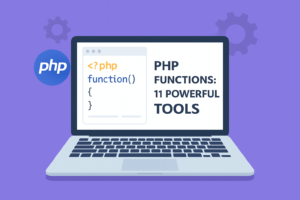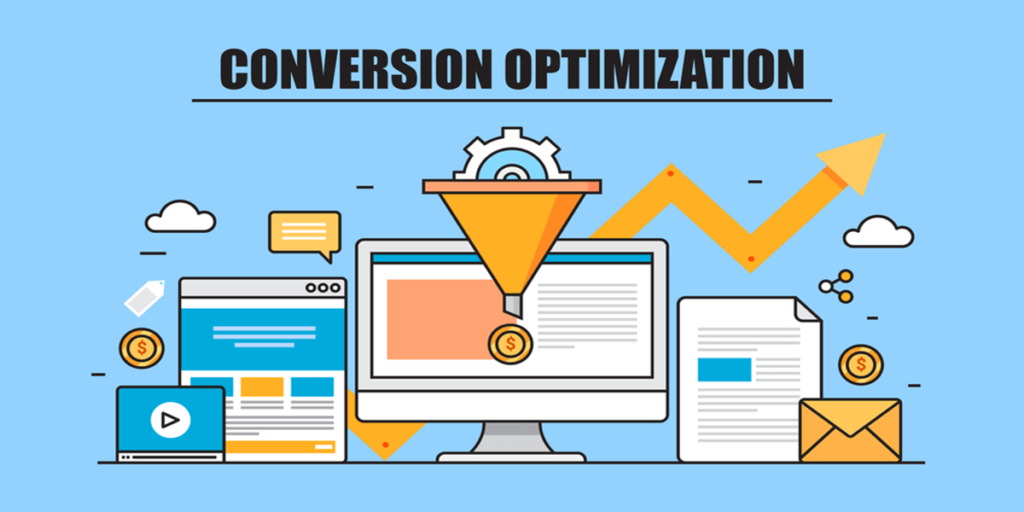Introduction
PHP (Hypertext Preprocessor) is one of the most widely used programming languages in web development. It’s robust, flexible, and offers a vast array of PHP functions that make coding easier, faster, and more efficient. Mastering these is essential for any web developer looking to improve their skills and streamline their development process.
In this article, we’ll dive into 11 PHP functions that can take your web development to the next level. Whether you’re new to PHP or an experienced developer, understanding and using these will significantly boost your productivity and website functionality.
1. array_map() – Transform Array Elements with PHP Functions
The array_map() function is one of the most useful for transforming the values in an array. It applies a user-defined function to each element, returning a new array with the modified values. It’s perfect when you need to modify arrays efficiently using PHP functions.
Example:
2. implode() – Merge Array into a String Using PHP Functions
The implode() function is one of the essential that converts an array into a string. This is especially useful for working with arrays when you need to join elements with a specific delimiter, such as commas or spaces.
Example:
3. array_filter() – Filter Array Elements with PHP Functions
The array_filter() function is another crucial tool in the toolkit. It lets you filter out unwanted values from an array based on a custom condition, making it an essential function for cleaning and processing data.
Example:
4. strpos() – Locate Substring Using PHP Functions
Finding the position of a substring in a string is made easy with the strpos() function. This function is perfect for checking if a specific string exists within another string, and it’s an important addition to your arsenal of PHP functions.
Example:
5. json_encode() – Convert Data to JSON with PHP Functions
One of the most commonly used for working with APIs is json_encode(). It converts data structures like arrays and objects into a JSON string, which is perfect for communication between your application and external services.
Example:
6. substr() – Extract String Portions Using PHP Functions
The substr() function is one of the most powerful for string manipulation. It allows you to extract specific portions of a string, which is highly useful for trimming data or processing input.
Example:
7. date() – Format Date and Time with PHP Functions
When working with dates and times, date() is an indispensable function. It allows you to format timestamps in a human-readable format, making it an essential tool for any web developer working with related to date and time.
Example:
8. explode() – Split Strings into Arrays Using PHP Functions
The explode() function is another critical for working with strings. It splits a string into an array based on a given delimiter, making it easier to process data such as CSV files.
Example:
9. filter_var() – Validate and Sanitize Data with PHP Functions
For any web application, validating and sanitizing user input is crucial. The filter_var() function is one of the PHP functions that helps you validate and sanitize data like email addresses and URLs, ensuring your application remains secure.
Example:
10. str_replace() – Replace Substrings with PHP Functions
The str_replace() function is an essential string manipulation tool in PHP functions. It allows you to replace specific characters or substrings with another string, which is often used in content processing or formatting.
Example:
11. session_start() – Manage User Sessions with PHP Functions
For websites that require user login or persistent data across pages, session_start() is a critical PHP function. It initiates a session and allows you to store user-specific information, such as login status or preferences.
Example:
Conclusion
By incorporating these PHP functions into your development toolkit, you can work faster, more efficiently, and with greater flexibility. Understanding these functions will help you become a more skilled and productive web developer.
Don’t hesitate to dive deeper into and experiment with them in real-world projects. The more you use them, the more powerful your PHP web development skills will become!



